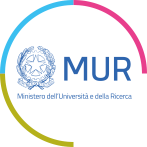Bando per assegno di ricerca
| Titolo del progetto di ricerca in italiano | Genomic complexity and microenvironmental interactions in the era of novel inhibitors: towards the identification of predictive factors guiding treatment decisions in Chronic Lymphocytic Leukemia (CLL). (Prof. GAIDANO) |
|---|---|
| Titolo del progetto di ricerca in inglese | Genomic complexity and microenvironmental interactions in the era of novel inhibitors. Towards the identification of predictive factors guiding treatment decisions in Chronic Lymphocytic Leukemia (CLL) (Prof. Gaidano) |
| Settore Concorsuale | 06 - Scienze mediche |
| S.S.D | MED/15 - MALATTIE DEL SANGUE |
| Descrizione sintetica in italiano | La leucemia linfatica cronica (LLC) è la leucemia più frequente nei paesi occidentali, ed ancora ad oggi incurabile. I pazienti con LLC che presentano i geni delle immunoglobuline mutati e privi di anomalie a carico del gene TP53, possono ottenere una lunga remissione con chemio-immunoterapia. Viceversa, i pazienti con anomalie del gene TP53 falliscono precocemente questo tipo di trattamento. Infatti, i pazienti con anomalie di TP53 sono oggi trattati con nuovi farmaci biologici, come ibrutinib, idelalisib e venetoclax, che riescono, almeno in parte, ad aggirare la loro chemio-refrattarietà. Una parte di pazienti però, nonostante l'alta efficacia di questi agenti biologici, recidiverà durante il trattamento. Lo scopo di questo progetto è quindi quello di identificare, grazie ad un approccio altamente sensibile di next-generation sequencing (NGS), marcatori molecolari che possono predire il fallimento del trattamento con i nuovi farmaci biologici sia prima che durante la terapia. |
| Descrizione sintetica in inglese | CLL is the most common and still incurable leukemia in the Western World. CLL patients with mutated IGHV genes devoid of TP53 disruption may achieve long lasting remission after chemo-immunotherapy, whereas TP53 mutated patients fail early this kind of treatment. Consistently, TP53 disrupted patients are now treated with novel agents, such as ibrutinib, idelalisib and venetoclax, that can, at least in part, circumvent their chemo-refractoriness. Despite the high efficacy of this biological agents, a fraction of patients still relapse. On this ground, the aim of this project is to identify, thanks to a highly sensitive next generation sequencing approach (NGS), molecular markers that may predict treatment failure of novel biological agents before and during the course of therapy. |
| Data del bando | 11/04/2019 |
| Paesi in cui può essere condotta la ricerca |
Italy |
| Paesi di residenza dei candidati |
OTHER |
| Nazionalità dei candidati |
OTHER |
| Sito web del bando | http://www.uniupo.it/it/ricerca/assegni-di-ricerca/bandi |
| Destinatari dell'assegno di ricerca (of target group) |
More Experienced researcher or >10 yrs (Senior) |
|---|---|
| Criteri di selezione in inglese (breve descrizione) |
To get more information about the application, you can see on the website Here the link: http://www.uniupo.it/it/ricerca/assegni-di-ricerca |
| Processo di selezione in inglese (breve descrizione) |
Applicants have to register on the site : https://diogene.uniupo.it/public and send the application before the deadline. After submission, the selection will be completed on 17/05/2019 in NOVARA (Italy) (please, see you the Call/Bando) Applicants have to run for the interview directly that day. E-mail service for confirmation does not provided but the e-mail address. assegni@uniupo.it is active for further information. |
| Nome dell'Ente finanziatore | Università degli Studi del Piemonte Orientale |
|---|---|
| Tipologia dell'Ente | Public research |
| Paese dell'Ente | Italy |
| Città | Vercelli- Novara- Alessandria |
| Sito web | http://www.uniupo.it |
| assegni@uniupo.it |
| L'assegno finanziato/cofinanziato attraverso un EU Research Framework Programme? | No |
|---|
| Data di scadenza del bando | 13/05/2019 - alle ore 00:00 |
|---|---|
| Come candidarsi | https://diogene.uniupo.it/public |
